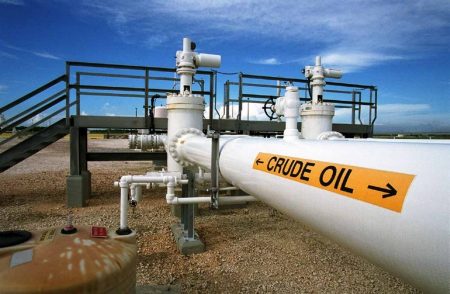
Nigeria’s crude oil production is expected to rise in the third quarter (Q3) of 2024, as new fields come onstream following the ongoing efforts to revamp existing oil and gas assets to boost output, a report by the Society of Energy Editors (SEE), has revealed.
In the report, titled ‘Third Quarter Outlook for Nigeria Energy Sector,’ the editors, however, predicted potential labour unrest in the downstream and upstream petroleum sectors in solidarity with organised labour’s agitations.
This latest outlook, which highlights the key trends and challenges expected in Nigeria’s energy sector during the third quarter of 2024, was produced by Fellows and Associates of SEE to provide advisory and guidance for the oil and gas industry.
The report, released by the Executive Secretary of SEE, Mr. Chuks Isiwu, noted the efforts of the Nigerian Upstream Petroleum Regulatory Commission (NUPRC) in the 2024 marginal fields bid round to impact investor confidence and boost production.
The report, however, highlighted key challenges, including security issues in the Niger Delta, ongoing divestments by oil majors, lack of investments, decaying infrastructure, poor governance structure, and poor implementation of the Petroleum Industry Act (PIA).
In the downstream and midstream sectors, the report said the refineries would operate at limited capacity due to unending maintenance and upgrades, while adding that fuel imports will remain high and put pressure on foreign exchange reserves.
Petroleum subsidy, the report said, will remain a significant burden on government finances.
“With fuel sold at different prices across the country in line with subsidy removal, price hike could hit 300 per cent in some states compared to the same time in 2023,” the report added.
The report also revealed that gas production will increase as new projects come online, while LNG exports will remain strong as Nigeria maintains its position as a key global supplier.
According to the report, power generation will also increase during the period under review, while transmission and distribution infrastructure upgrades will continue.
It also predicted funding shortfalls due to lack of investment coupled with grid stability issues.
On labour issues, the report stated that the cost-of-living crises would continue while “electricity sector workers may protest over unpaid wages and benefits. “Workers are also poised to show solidarity with organised labour over cost-of-living crises,” the report said.
The report noted that the efforts to grow revenue generation from solid minerals would continue, pointing out that insecurity, artisanal mining, regulatory framework gaps, poor state of road and rail network for evacuation of mined minerals remained the major challenges.
According to the report, efforts to institutionalise the Host Community Development Fund for oil and gas-producing communities will continue in line with implementation of the PIA, while there is no end in sight to insecurity, crude oil theft, artisanal refining, oil spill.
The SEE report noted that the Nigerian Content Development Monitoring Board (NCDMB) will continue domiciliation efforts, adding that there will be increased local participation in the oil and gas industry.
“The management of the Nigerian Content Intervention Fund by the Bank of Industry could suffer constraints owing to political interference,” the report said.
The report added that political interference will hobble the gains attained.
The report also stated that the Niger Delta Development Commission (NDDC) will also face the challenges of political interference, abandonment of projects, and non-payment for completed projects.
Via: thisdaylive





